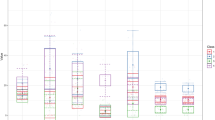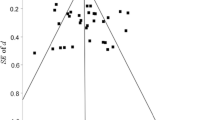Abstract
The know-how of critical thinking is tacit and latent, and the importance of training critical thinking skills is widely recognized. For those reasons, it is difficult (i) for learners to develop meta-cognitive skills, (ii) for teachers to externalize their tacit know-how of critical thinking, and (iii) for system developers to embed active learning support functions into the system that follow a learner’s thinking processes. To support meta-cognitive learning, CSCL is a promising approach, although we must design functions well to facilitate learner and teacher behaviors (communications). In this paper, we propose a learning-phase model that specifies learning goals and scaffolds for respective learning phases. Furthermore, we illustrate a development system for a nursing domain according to the model. We expect that the model-based system will contribute to encouraging meaningful learning behaviors.
Preview
Unable to display preview. Download preview PDF.
Similar content being viewed by others
References
Eugene, B.Z., James, E.J.: Critical Thinking – A Functional Approach –. Wadsworth (1992)
Nonaka, I.: The Knowledge-Creating Company. Oxford University Press, Oxford (1995)
Kayashima, M., Mizoguchi, R.: Collaborative Writing with Load Distribution and Gradual Load Growth of Metacognitive Activities. In: Proc. of the 31st Annual Conference of the Japanese Society for Information and Systems in Education, pp. 283–284 (in Japanese) (2006)
Abdellah, F.G.: Methods of Identifying Covert Aspects of Nursing Problems – A key to improved Clinical Teaching –. Nursing Research 6(1), 4–23 (1957)
Peden-McAlpine, S.: Expert thinking in nursing practice: Implications for supporting expertise. Nursing and Health Sciences 1(2), 131–137 (1999)
Paul, R.W., Heaslip, P.: Critical thinking and intuitive nursing practice. Journal of Advanced Nursing 22, 40–47 (1995)
Matsuzaki, E.: The Effect of the Ability of Nursing Students to Utilize Information on Orientation of Critical Thinking and Metacognition in Learning. Journal of Japanese Society of Nursing Research 27(5), 73–81 (2004)
Rosalinda, A.L.: Critical Thinking in Nursing: A Practical Approach. W. B. Saunders Company (1996)
Benner, P.: From Novice to Expert: Excellence and Power in Clinical Nursing Practice. Addison-Wesley Publishing Company, Reading (1984)
Okamoto, N.: Review of Metacognitive Research – from educational implications to teaching methods. Journal of Japanese Society for Information and Systems in Education 19(3), 178–187 (2002)
Bruer, J.T.: Schools for thought – a science of learning in the classroom. MIT Press, Cambridge (1993)
Piaget, J.: Piaget’s theory. In: Musen, P.H. (ed.) Carmichael’s Manual of Child Psychology, Wiley, New York (1970)
Seta, K., Ikeda, M.: Reification Method to Encourage the Learning Communication on Meta-Cognition. In: Proc. of KES 07 (submitted, 2007)
Author information
Authors and Affiliations
Editor information
Rights and permissions
Copyright information
© 2007 Springer-Verlag Berlin Heidelberg
About this paper
Cite this paper
Seta, K., Satake, H., Umano, M., Ikeda, M. (2007). Learning Phase Model Based Scaffolding and Its Fading to Facilitate Collaborative Learning of Critical Thinking. In: Apolloni, B., Howlett, R.J., Jain, L. (eds) Knowledge-Based Intelligent Information and Engineering Systems. KES 2007. Lecture Notes in Computer Science(), vol 4694. Springer, Berlin, Heidelberg. https://doi.org/10.1007/978-3-540-74829-8_73
Download citation
DOI: https://doi.org/10.1007/978-3-540-74829-8_73
Publisher Name: Springer, Berlin, Heidelberg
Print ISBN: 978-3-540-74828-1
Online ISBN: 978-3-540-74829-8
eBook Packages: Computer ScienceComputer Science (R0)




